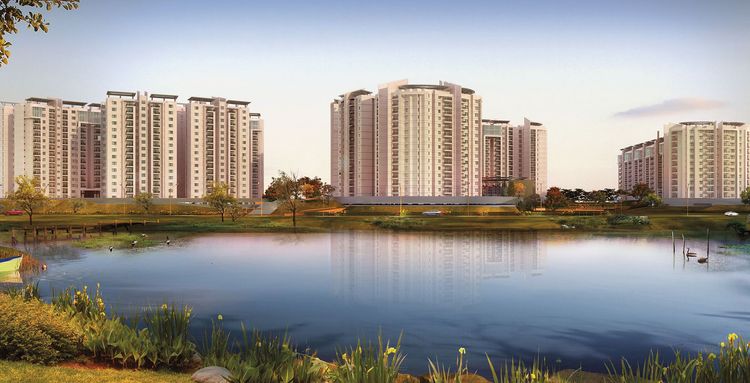Introduction: Making the Right Real Estate Investment
Real estate is one of the most powerful ways to build long-term wealth, but with so many options—commercial properties, apartments, plots, and fractional ownership—choosing the right investment can be overwhelming.
Are you looking for high rental income or long-term appreciation? Do you want stability and easy financing, or are you willing to take on higher risks for greater rewards?
To help you make an informed decision, our research expert Ar. Jatin has analyzed different real estate investment types, breaking down their returns, risks, financing options, and suitability for different investors. By the end of this blog, you’ll have a clearer idea of which real estate investment aligns best with your goals. Let’s dive in!
Commercial Property: High Returns, High Risk
Commercial real estate offers rental yields of up to 7-8%, nearly double that of residential properties. However, its success heavily depends on location—while prime areas attract strong tenants, poorly located properties may stay vacant for long periods.
Risks of Commercial Property Investments
- Tenant Turnover: Businesses frequently change, downsize, or relocate, making it challenging to secure long-term, reliable tenants.
- Financing Difficulties: Unlike residential properties, banks do not provide home loans for commercial real estate. Instead, investors must rely on commercial loans, which have:
- Higher interest rates (typically higher than home loans)
- Shorter repayment periods
- Larger down payment requirements
- Extended Vacancy Periods: Longer vacancy periods can severely impact cash flow, especially during economic downturns.
- High Maintenance Costs: Commercial properties come with structural repairs, maintenance fees, and higher insurance costs, which can eat into profits.
💡 Pro Tip: If you're risk-averse or new to real estate investing, consider safer alternatives like residential properties or fractional commercial ownership.
Fractional Commercial Ownership: A Risky Bet
Fractional ownership allows investors to own a percentage of a commercial property, making high-value real estate more accessible.
It works similarly to Undivided Share (UDS) in residential projects—you own a portion of the asset and are entitled to a share of the rental income and capital gains.
What is UDS?
When you buy an apartment, you don’t just own the flat—you also own a portion of the land it’s built on, called Undivided Share (UDS). Since land appreciates over time, a higher UDS generally means better long-term value.
Risks of Fractional Ownership
- Liquidity Issues: Reselling fractional shares can be extremely difficult due to low demand.
- Dependence on Third-Party Management: You have limited control over tenant selection, maintenance, or leasing terms, making success heavily dependent on management quality.
- Shared Responsibility: Disputes may arise between multiple owners, especially regarding maintenance or future sale decisions.
💡 Key Takeaway: Fractional ownership is ideal for long-term investors who are comfortable with less control and lower liquidity.
Apartments: Stability with Moderate Returns
Investing in apartments is a safer option with moderate returns. Rental yields typically range between 2-4%, which is lower than commercial properties but provides a steady income stream.
Advantages of Apartment Investments
- Easier Financing: Banks offer home loans covering up to 90% of the property value, making apartments more accessible.
- Steady Appreciation: Over 5-10 years, demand increases as infrastructure improves. Investors who buy early—during the Expression of Interest (EOI) or pre-launch stages—often see the highest appreciation.
- Lower Legal Risks: Apartments have a lower chance of encroachment or title issues compared to plots, as they are usually developed by established builders with legal approvals.
Key Considerations Before Buying an Apartment
- Developer Reputation: Choose a builder with a strong track record for on-time delivery and quality construction.
- Unit Selection: Pick a unit with strong resale potential, close to transport, schools, and shopping centers.
- Market Conditions: External factors like economic slowdowns or infrastructure delays can impact appreciation.
💡 Pro Tip: Apartments provide stable growth and easy financing, making them a great option for first-time investors.
Plots: Long-Term Appreciation
Plots offer full land ownership, unlike fractional investments. They are usually located on city outskirts, where development takes time. The real value increases when infrastructure projects like metros, highways, or IT parks are planned nearby.
Risks of Plot Investments
- No Rental Income: Plots do not generate rental returns.
- Long Holding Period: Appreciation can take years or even decades, requiring patience.
💡 Key Takeaway: If you’re willing to hold for the long term, plots can offer significant returns, especially when bought in high-growth corridors.
Which Investment is Right for You?
To make it easier, here’s a quick comparison of different real estate investments:
Final Thoughts: Choose Based on Your Goals
🔹 Looking for high rental yields? Go for commercial property.🔹 Prefer a safer, stable investment with easy financing? Choose apartments.🔹 Want to invest in land for long-term gains? Buy plots.🔹 Interested in premium commercial real estate but lack capital? Consider fractional ownership (but be mindful of risks).
Still unsure which investment is right for you? Our experts at Propsoch are here to guide you! Whether you're a first-time investor or looking to expand your portfolio, we help you make the right choice based on your financial goals.







